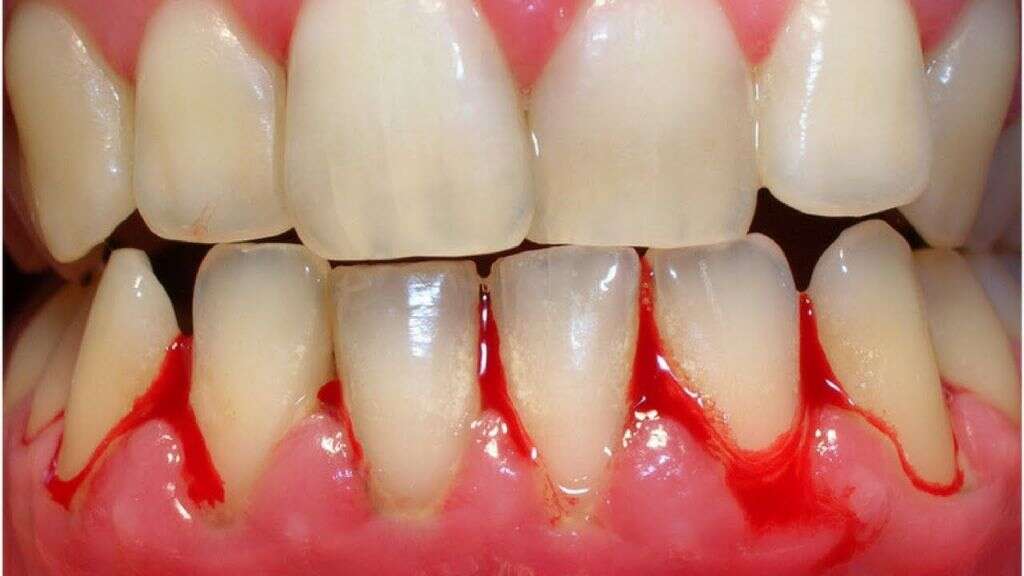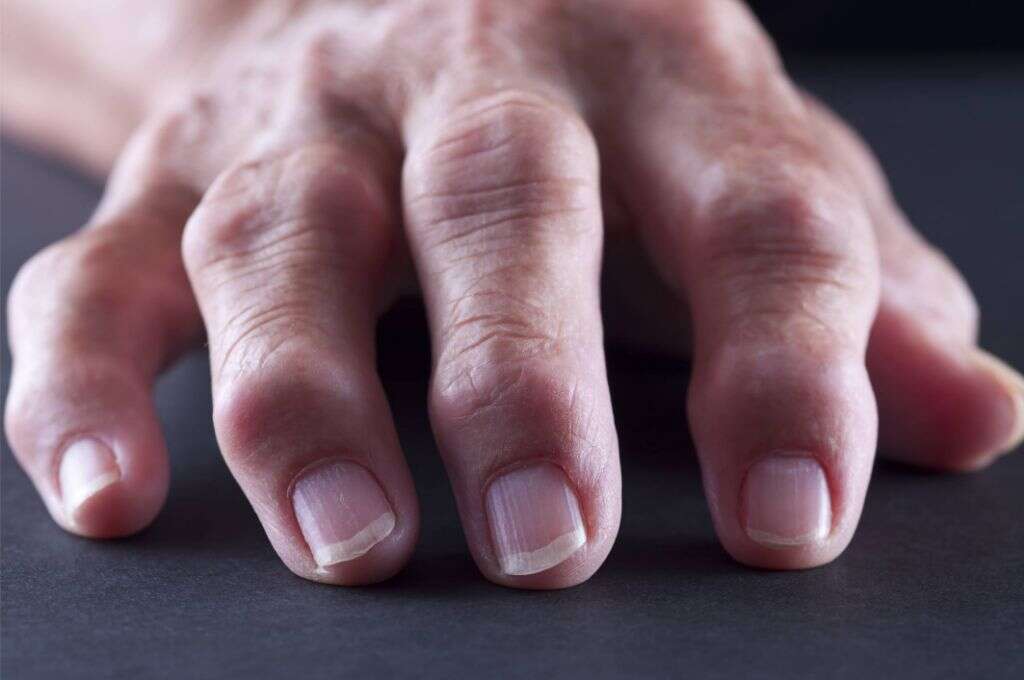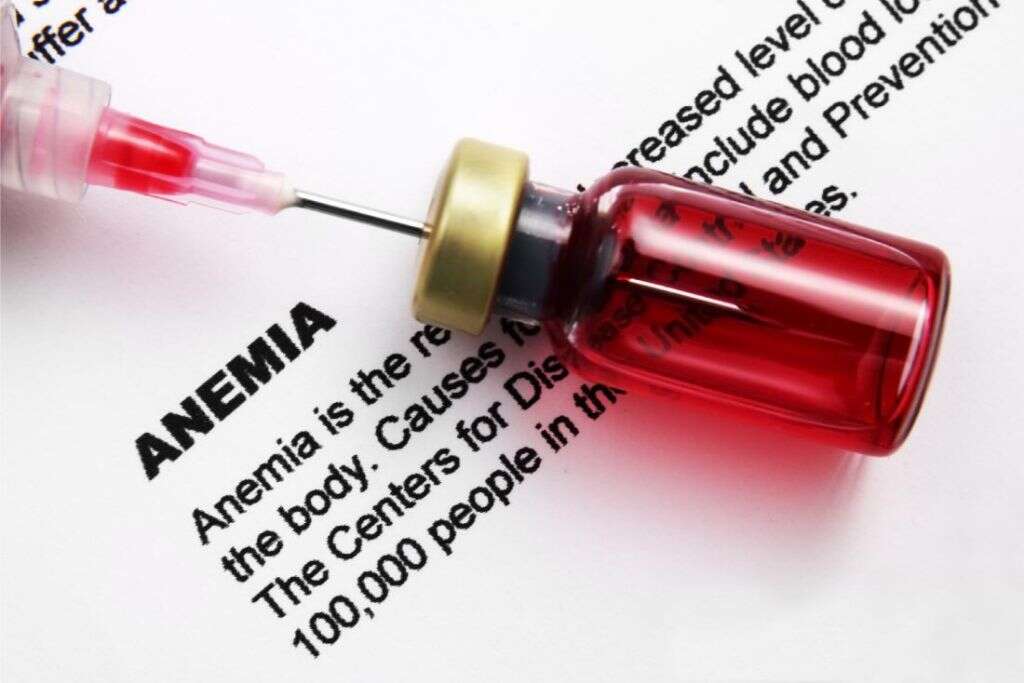10 Vitamin C Deficiency Symptoms
Vitamin C, also called ascorbic acid, is one of the most important micronutrients required by the body on a regular basis. It is involved in a wide range of body functions including protecting against infection and illness, growth and repair of body tissues, absorption of iron, production of collagen, and maintenance of bones, teeth, and cartilage.
Because of its many roles, it is necessary that your diet contains adequate amounts of vitamin C. If this does not happen, vitamin C deficiency can occur. Deficiency can also be caused by poor diets, excessive alcohol intake, smoking, and illnesses.
Symptoms of vitamin C deficiency don’t appear suddenly, but develop over time. Here are the leading 10 symptoms of vitamin C deficiency to watch out for.

Symptom #1: Dry Skin
Vitamin C is essential for the synthesis of collagen. Collagen is the most common protein in connective tissues such as skin, hair, blood vessels, joints, tendons, ligaments, and bones. A lot of vitamin C goes toward maintaining healthy hair, skin, and nails. It is no wonder that manufacturers of personal care products for these body parts use vitamin C and collagen in their products.
When the level of vitamin C is too low, the connective tissues, including skin, are among the first to suffer. Keratosis, a skin disease, may develop, in which case keratin accumulates in skin pores of the upper arms, thighs, and buttocks. This causes the affected skin to become bumpy like chicken skin. The condition develops after about 6 months of insufficient vitamin C intake. The condition is not dangerous and generally resolves once you sustainably increase your vitamin C intake.

Symptom #2: Malaise
Malaise is described as the feeling of being unwell. It is a non-specific symptom associated with many conditions and it is quite common in patients suffering from vitamin c deficiency.
The insidious onset of this symptom is characteristic of the condition and it is one of the first symptoms to appear.

Symptom #3: Bruising Easily
Practically everyone has experienced bruising. This happens when the tiny blood vessels under the skin rupture and cause blood inside them to fill the surrounding tissues. Bruising usually occurs as a result of a light to medium blow to the skin. However, when unexplained bruises suddenly appear on your skin, it is a sign that you may be vitamin C deficient. Bruising easily is one of the most common symptoms of vitamin C deficiency. It occurs because of poor synthesis of collagen within skin tissue.
The problem with the bruises resulting from vitamin C deficiency is that they are not localized to any particular area of skin. They may appear as small purple spots under the skin, or even affect a large area of the skin. Bruising easily is among the first symptoms of vitamin C deficiency and should be investigated as soon as noticed.

Symptom #4: Bone Pain
Vitamin C is essential for the health of the bones. Its deficiency can lead to bone weakness. This can increase the risk of pathological fractures and osteoporosis. According to several studies, vitamin C plays an essential role in the formation of bones. However, when the level of vitamin C decreases, the rate of bone loss increases.
The insidious onset of this condition makes it hard for the patient to notice specific symptoms, but bone pain is one of the most recognizable signs. It is usually mild and located in the long bones like the femur and humerus.

Symptom #5: Chronic Inflammation
Vitamin C works as an antioxidant and anti-inflammatory. It is essential for the prevention of cellular and tissue damage. It neutralizes free radicals thereby preventing excess inflammation and oxidative stress. Oxidative stress and inflammation are associated with many chronic diseases including heart disease, diabetes, and high blood pressure.
Many studies link inflammation and oxidative stress to vitamin C deficiency, suggesting that increased vitamin C intake can help reduce their negative effects and thereby prevent many chronic illnesses. It is, therefore, critical to maintain a healthy intake of vitamin C to reduce inflammation and oxidative stress. While it is best to get vitamin C from food, you can also take vitamin C supplements, especially when you are deficient.

Symptom #6: Recurrent Infections
Many studies show that vitamin C is essential for preventing and fighting infections. It accumulates within the different types of immune cells to enhance their capacity to fight infections and pathogens.
Low vitamin C intake can lead to deficiency. This reduces the capability of your body’s immune system to protect against infection and fight invading pathogens and is the reason why deficiency in vitamin C is associated with serious diseases and infections such as pneumonia.

Symptom #7: Bleeding Gums
Another common symptom of vitamin C deficiency is bleeding gums. The gums become more sensitive, swollen, and reddish. Bleeding from the gums occurs because they are made of connective tissue that requires vitamin C for maintenance just like all other connective tissues.
Low vitamin C intake causes the tissue that constitutes the gums to weaken. This exposes it to inflammation and to possible infection. The blood vessels within the gums also weaken and become easy to rupture. When the condition advances, the gums become purplish in color and may start to rot. They also produce a bad odor. The teeth are also affected and they may start falling out due to the weak, unhealthy gums.

Symptom #8: Swollen Joints
Another problem associated with vitamin C deficiency is its effects on joints. Joints contain a huge amount of collagen in the connective tissues. In fact, joints are considered the body parts with the richest amounts of connective tissue and collagen. This is the reason why joints are among the most affected by vitamin C deficiency.
Joints have a complex array of blood vessels to supply nutrients. For patients with low vitamin c levels, bleeding is a known issue. When the blood vessels inside the joints start to bleed, the joints become swollen and painful, this condition is known as hemarthroses.

Symptom #9: Poor Appetite
Patients suffering from vitamin c deficiency usually experience episodes of poor appetite during the early stages of the disease. It may also be associated with the characteristic lethargy that is seen in these patients as well.
If you are suffering from this symptom, you should seek medical attention for proper diagnosis.

Symptom #10: Poor Weight Gain
Vitamin C is very important for the proper development of many tissues in our bodies. For children suffering from vitamin c deficiency, it is very common to see them having a hard time reaching their growth-related developmental milestones.
This can be associated with short stature later in life.












